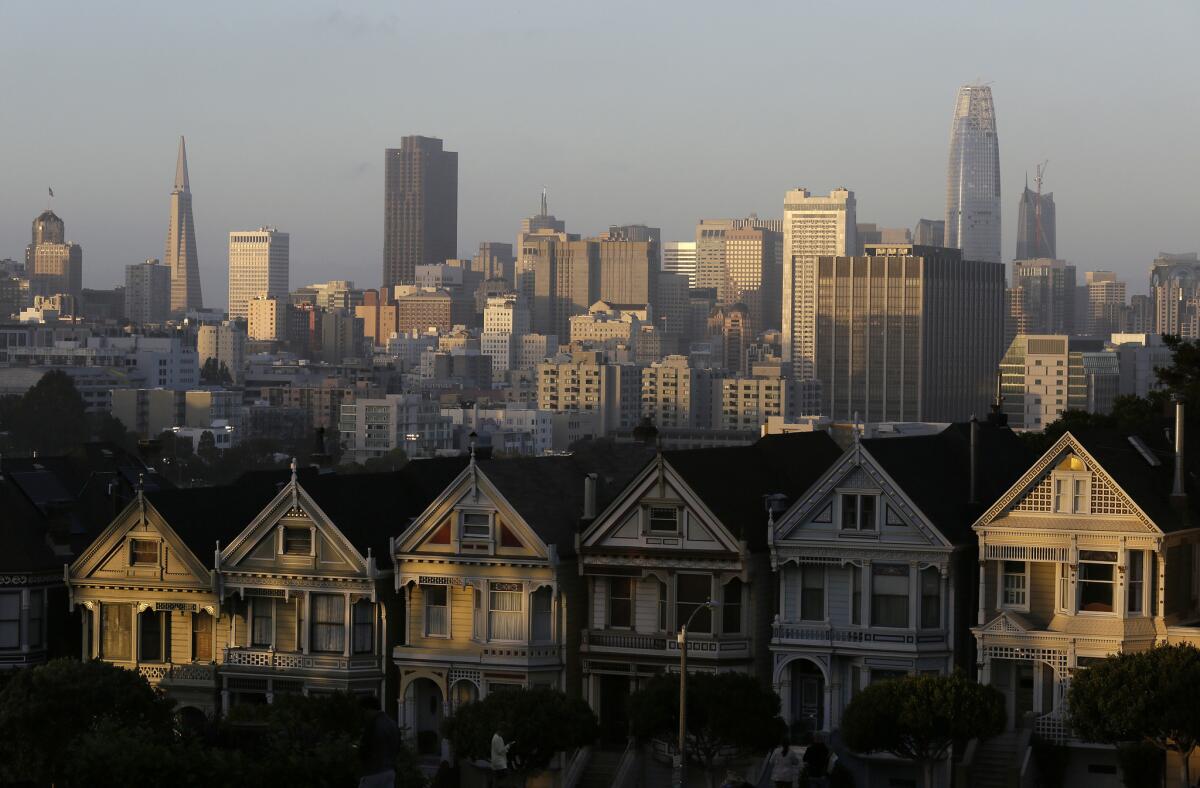Capitol Journal: High taxes be damned, the rich keep moving to California

Are rich people fleeing California to escape astronomical state income taxes? That’s the word. But it’s fake news.
In fact, more wealthy people are moving to California than leaving, research indicates. It’s the poor and middle class who are departing.
It makes sense. If you’re getting rich in California and can afford to live comfortably here in this balmy climate, there’s little incentive to leave — except to stick it to the tax collector in Sacramento.
“If you’ve got your business here and you’re making money, it’s hard to leave,” says Allan Zaremberg, president of the California Chamber of Commerce.
“And if you’re making money in California, you’re still going to get taxed here even if you live in Texas,” he said. “You get taxed where you make the money, regardless of where you live.”
Loren Kaye, president of the California Foundation for Commerce and Education, a chamber affiliate, cautions: “You can’t shelter your income simply by moving out of state. If your business or work is in California, that’s where you’re taxed. California very aggressively collects taxes.”
But, he adds: “If you’re retired or living off of investments, that’s different.”
You can move to Nevada, where there’s no state income tax, and live off a California public pension without paying either Sacramento or Carson City.
The long-speculated California tax escape was mentioned in lots of emails last week after I wrote about superstar baseball slugger Bryce Harper. He rejected competitive offers from the Dodgers and San Francisco Giants and signed a 13-year, $330-million contract with the Philadelphia Phillies in low-tax Pennsylvania.
Avoiding California’s highest-in-the-nation 13.3% income tax rate was just one of several reasons Harper signed with the Phillies. He also liked their hitter-friendly ballpark. And he felt comfortable playing in the National League East, where he has spent his entire major league career.
But Harper will save many millions in taxes by not playing for a California team, a strong inducement despite his hometown being nearby Las Vegas.
California’s income tax has become even more burdensome for the wealthy and many middle-class residents because of new federal so-called reforms. President Trump and the previous Republican Congress stripped our ability to deduct all state income and local property taxes on federal returns. There’s now a $10,000 limit.
Harper’s avoidance of this state seemed symbolic of the California tax-flight tale that has circulated for years. But apparently it’s mostly made up.
Sure, there are anecdotes galore. Everyone seems to know someone who has fled California to dodge its high taxes. But there’s no wholesale bolting of the rich.
“Substantially more rich people are moving into California than moving out,” says Cristobal Young, a Cornell University sociology professor. He teamed with others at Stanford University’s Center on Poverty and Inequality to write a research paper on “Millionaire Migration in California.”
“They want to be where the action is,” Young says. “There’s more opportunity in California. There are a lot of ways to make a lot of money in California, more than other places. A lot of that is tech, but it’s a diverse economy….
“People who want to make money tend to live where other high-income people are. It’s one thing to say, ‘I’m going to leave California to save money on taxes.’ But that means leaving clients, collaborators, investors, friends….
“It’s not that rich people are moving to Reno and Nevada,” Young adds. “They’re moving to San Francisco and making living costs miserable for a lot of people.
Coverage of California politics »
“California has a net out-migration of low-income folks who can’t afford to live in their state and are being pushed out by high-income homeowners. And there’s a whole other story of middle-class people struggling to pay their bills and the housing shortage hitting them hard.”
The Stanford report concludes that California has “consistently become a more attractive place for millionaires,” adding that perhaps this is because California has become “a winner-take-all economy.”
Similar findings have been reported by other organizations.
“Although California has had net out-migration among most demographic groups, it has gained among those with higher incomes ($110,000 per year or more) and higher levels of education (graduate degrees),” the state Legislative Analyst’s Office determined last year.
Next 10, a public policy think tank, found that “the main driver for net out-migration appears to be high housing costs since migration rates are highest for those at lower-wage levels…. The vast majority of people who moved out of California were concentrated in lower-skilled, lower-paying fields.”
State demographers, digging into federal census data, found that significantly more people earning above $125,000 were moving into California than were leaving. And more earning less than $75,000 were taking off.
In the January state budget document, there also was this observation: “Over time the state…has become more educated on average due to outward migration of less educated residents…and inward migration of more educated people.”
So the wealthy are not fleeing California in droves even though they’re being hammered by state income taxes. The top 5% of earners pays two-thirds of the tax. The bottom 80% pays less than 11%. That’s just bad tax policy because it leans too heavily on rich people’s capital gains that plummet during a recession.
Fortunately the rich are staying with us, fueling the economy and funding state government. And they keep arriving.
Follow @LATimesSkelton on Twitter
More to Read
Get the L.A. Times Politics newsletter
Deeply reported insights into legislation, politics and policy from Sacramento, Washington and beyond. In your inbox three times per week.
You may occasionally receive promotional content from the Los Angeles Times.







